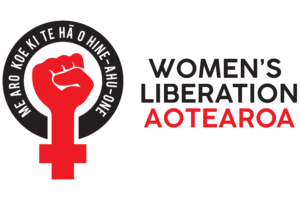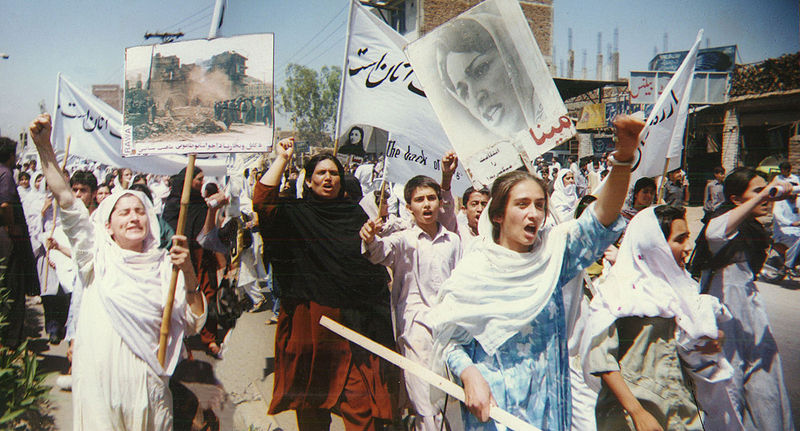Guest Post: Women, the Taliban and sex-based rights
By: Weka
16 August 2021
Admin Note: This post was originally published at The Standard
In this post I use the terms women and girls to mean biological females. I avoid the use of the word gender because it can mean biological sex, gender roles, gender identity, or some conflation of those, and almost no-one bothers to say which they mean when they use it. If you are commenting, please make sure you make clear the meaning of the words sex and gender that you are using.
I’m going to try and explain here why what is being done to women in Afghanistan is because they are biologically female, and why gender identity should not be prioritised over or replace sex based rights or conventions in law and society. The short version is that the Taliban don’t give a shit about gender identity in how they are treating women.
Here’s a description on Twitter by freelance foreign correspondent Kim Willsher of what she saw done to women in Afghanistan when the Taliban took over Kabul in 1996:
“It was catastrophic for women and girls in the city. Within days all women were ordered back into their homes and told not to come out without a male relative accompanying them. Working women, even those in high ranking positions including judges and magistrates, were ordered to stay home. Women who did venture out were told to wear a burqa: the Islamic fashion of the day was a long blue pleated nylon garment that covered from head to toe and had a small thick woven panel across the eyes. It was so completely dehumanising, people started referring to women as “burqas” as in: “Look, there’s a couple of burqas over there…”
The ‘morality police’ would patrol the streets and markets with batons hitting women who showed any flesh as they walked (toe, ankle, wrist…) Afghan women suddenly found they had no access to health care. They were not allowed to be seen by a male medic, but all the female medics had been sent home. A grief-stricken pregnant woman whose baby had died in the womb was turned away from the hospital. Girls were told there would be no more school. There was to be no more sports, no games, no music, no dancing… As a female reporter, interviewing became problematic: Mullah Omah, the head of the Taliban, had decreed that the sound of a woman’s voice should not reach the ears of his men.
I was lucky: I got to fly home. The Afghan women and girls who risked their lives by just speaking to me, had nowhere to go. It was a catastrophe for Afghan women and girls then. It will be a catastrophe for them now.”
Here’s what’s happening now. This report at the Guardian from a young woman journalist (anonymous) fleeing her home and life in the north of Afghanistan as the Taliban take over:
“I am still on the run and there is no safe place for me to go. Last week I was a news journalist. Today I can’t write under my own name or say where I am from or where I am. My whole life has been obliterated in just a few days. … I’m not safe because I’m a 22-year-old woman and I know that the Taliban are forcing families to give their daughters as wives for their fighters. I’m also not safe because I’m a news journalist and I know the Taliban will come looking for me and all of my colleagues.
The Taliban are already seeking out people they want to target. At the weekend my manager called me and asked me not to answer any unknown number. He said that we, especially the women, should hide, and escape the city if we could. … We managed to get to my uncle’s car and started driving towards his house, which is 30 minutes outside the city. On the way we were stopped at a Taliban checkpoint. It was the most terrifying moment of my life. I was inside my chadari [Afghani Burka] and they ignored me but interrogated my uncle, asking him where we were going…”
They were let go, but were still unsafe in her uncle’s village which is under Taliban control:
“… they said the Taliban knew I’d been taken out the city and if they came to the village and found me there, they’d kill everyone. We found somewhere else for me to hide, a home of a distant relative. We had to walk for hours, with me still in my chadari, staying away from all the main roads where the Taliban might be. This is where I am now. A rural area where there is nothing. There is no running water or electricity. There is barely any phone signal and I am cut off from the world.”
Most of the women and girls I know have also fled the city and are trying to find somewhere safe. I cannot stop thinking and worrying about my friends, my neighbours, my classmates, all the women in Afghanistan. All my female colleagues in the media are terrified. Most have managed to flee the city and are trying to find a way out of the province, but we are completely surrounded. All of us have spoken out against the Taliban and angered them through our journalism. Right now, everything is tense. All I can do is keep running and hope that a route out of the province opens up soon. Please pray for me.”
The oppression being described by those two women is sex based. The Taliban recognise women as a sex class, and choose to control them on that basis. They use concepts and beliefs about gender roles (i.e. that roles in society should be assigned on the basis of sex) to control women. They do this because they’re misogynistic, but also because they need to enforce their cultural and religious beliefs as widely as possible in order to maintain control of Afghanistan. This is why women are are married off. If one is living with a Taliban husband, it makes it much harder for those women to raise their children in any other way, let alone as feminist. Women as a class will also naturally tend towards egalitarianism because of their biological role in bearing and caring for children.
The basis of sex-based oppression historically has been about the systematic control of women’s reproductive and other labour.
If this were about gender identity, if ‘woman’ was determined by self-ID, or being a woman or man was determined by how one feels internally, women in Afghanistan would be able to identify as men and thus would no longer be oppressed. The thing that all women have in common, that the Taliban recognise, is that they’re biologically female, and in this case, they’re the sex class that bears children.*
In the West the gender activist movements want to replace recognition of sex based rights with gender identity. There is an idea that this will end gender roles, but what we are seeing is an increase in gender roles at the social level eg the design of marketing kids toys is reverting back to pink for girls, blue for boys, and there are boys toys (trucks/rockets/guns) and girls toys (dolls, princess costumes, toy kitchen sets). And pink/blue is an obvious design feature of gender activism.
Think what is happening in Afghanistan couldn’t happen in ‘civilised’ countries? Do you believe women’s rights here are secure?
How will we be able to even define women’s rights once sex is replaced by gender ID and we no longer count women’s experiences?
In New Zealand, we’re a bastion of women’s rights, right? And we are very lucky relative to the rest of the world, but remember Roastbusters, where young women were being sexually assaulted and the rape culture among men and the police meant almost nothing was done about it? And how a decade later we’re hearing about the high rates of rape and sexual harassment of girls at a Christchurch girls high school?
In the past few weeks, we have a prominent political woman in New Zealand being called a burqa cunt repeatedly by politicised liberals on twitter (kudos to the few pro-gender lefties who saw the problem with this and spoke up, but the silence from the NZ left on this is deafening. And it’s not an isolated event).
In Scotland one of the leading rape crisis centres said last week that women who have been raped and are accessing their services can expect to be re-educated on their bigotry if they ask for or demand a woman support worker or counsellor (thus excluding trans women RC workers. Women’s right to choose is to be constrained).
In the same week that what is being done to women in Afghanistan is breaking into the consciousness of the English speaking world, the UK Labour Party has issued a statement asserting that:
“We don’t believe the oppression of women derives primarily from our biology but from (anti-)social factors which lead to women being treated as second class.”
The Taliban are anti-social I guess, and to be reeducated. A key point here is that this position removes power from women as a sex class and assimilates us into a system that says everyone will be equal if we adopt sex blindness. Who stands up for women then?
I could go on, but it’s deluge. There are more issues happening around gender/sex, including serious legislative and social change, than I can keep up with, and most of it is not being openly debated in the mainstream media or political spaces.
Lest we believe that women in the West are secure, in the US women’s rights hang by the Roe v Wade thread, fundamentalism is on the rise, and the current political respite is from the Trump years that saw the rise of a political class that would easily revert back to controlling women on the basis of sex (they also hate trans and other gender non-conforming people). In New Zealand, we had a decade of FJK with embedded misogyny and protofascism. That hasn’t gone away, the people that believe those things are still among us and many are still in power.
In a future likely to feature major social and political disruptions due to climate and ecological crises, I want my rights as a woman to be hardwired into our institutions and law, and not to be left to the vagueness and fragility of a social dynamic in its infancy that most people don’t understand and haven’t had a part in developing let alone agreeing to.
*Men are also affected, especially gay men (biological males attracted to other biological males). I don’t know what happens to trans people in Afghanistan, and I fully support an end to their oppression as well. I believe the best way to achieve this is to recognise sex based rights and gender non-conformity without removing sex based rights.


Leave a Reply
Want to join the discussion?Feel free to contribute!